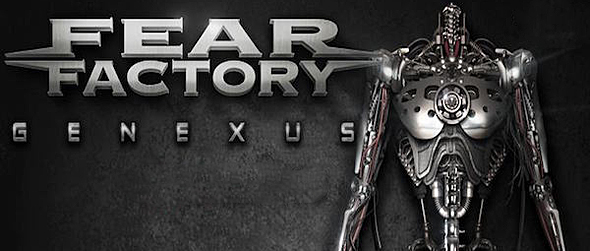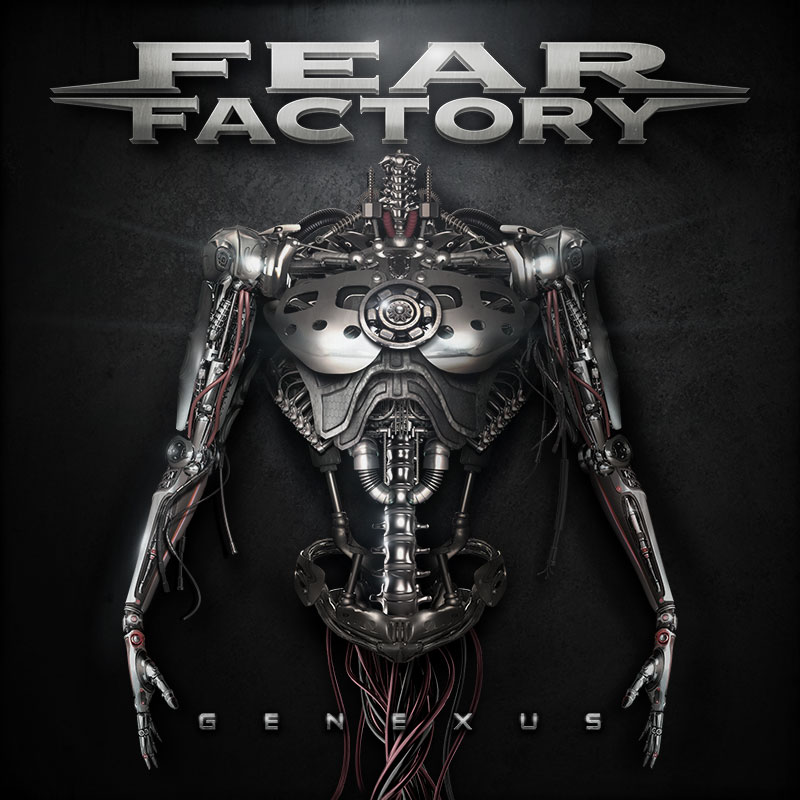One of the bigger and brighter names in extreme music, Fear Factory began carving their path out of the urban blight of Los Angeles, California way back in 1990. It is always intriguing when musicians from other backgrounds make a career out of heavy metal, but that is just what Burton C. Bell and Dino Cazares did with Fear Factory. Taking their love of Godflesh, Post-Punk, Goth, and Industrial, the vocal and guitar tandem embarked on making some of the most forward-thinking, brutal Death Metal this side of Morrisound Studios. Cross-pollination from the world of Industrial music resulted in masterworks like Demanufacture (1995) and Obsolete (1998). Fearless remixes surrounded these albums, proving that Fear Factory would make the music they wanted to, and genre confines be damned. A foray into Nu-Metal territory alienated some of their original fans, but the machine of Fear Factory plunged on undeterred. After enduring tremendous lineup instability and even some legal battles, Bell and Cazares reunited and the second decade of the new millennium saw them getting right back on track with 2010’s Mechanized and 2012’s The Industrialist. Working with such luminaries as drummer Gene Hoglan (Dark Angel, Strapping Young Lad) and Byron Stroud on bass guitar (Strapping Young Lad), these two releases refocused and recharged a band whose ’90s success was virtually untouchable, but whose uncertainty in the 2000’s left many wondering if the factory was finally closing its doors.
Three years after the release of The Industrialist, Fear Factory are back with their ninth studio album, and first for Nuclear Blast Records, entitled Genexus. Bell and Cazares remain the songwriting core. Sitting behind the kit is Mike Heller (Malignancy, System Divide, Control/Resist), who joined the ranks in 2012, while bass guitar duties on the album are handled by newcomer Tony Campos (Static-X, Ministry, Prong, Soulfly, Possessed). Campos and Heller may be new to Fear Factory, but they are both well-traveled and experienced players, proficient in a wide array of styles guaranteed to keep the music on Genexus at the apex of top musicianship.
Genexus sees Fear Factory once again exploring the theme of synthesis between human and machine intelligence, going deep into the concept of how our technology will one day eat us. Unlike similar conceptual pieces from years past, it is now 2015. It doesn’t take a deep foray into science and tech articles to see that the things we make are changing our lives as well as those of our children. The president kills people with remote control planes, tiny micro-tech machines are being designed to enter our bodies and treat conditions within, while the government uses computers and satellites to influence, spy on, and hack into private accounts. It is happening everywhere, and Genexus is a soundtrack to the struggle to remain human in the face of these developments.
High concepts notwithstanding, how does the music of Genexus manage to relay this message to its listeners? As stated earlier, the two Bell/Cazares reunion albums (Mechanized and The Industrialist, respectively) put Fear Factory back on track, but they were arguably a bit too restricted in their songwriting approach. The albums felt stilted and rigid, almost as if the creative core were easing back into their old friendship; there was a deliberateness there that perhaps constricted what those otherwise quality albums may have achieved. With Genexus, Fear Factory worked once again with producer extraordinaire Rhys Fulber (Frontline Assembly), and the time and effort put into its making is readily apparent.
Opting not to open with the title track for the first time in a pair of albums, Fear Factory begins the Genexus journey with “Autonomous Combat System,” a song which emerges in martial cadence from a backwash of ambient keyboard sounds. The verses sound not unlike that album opener of yore, “Demanufacture,” off the album of the same name. As this first song slides by the listener’s ears, Fear Factory staples of trigger-precision drumming, industrial sound waves, and down-tuned guitars faithfully following the kick drum give rise to a melodic, uplifting chorus led by Bell’s fantastic singing voice. It is a strong song, a sneak peak back to Fear Factory’s most successful period of the mid-’90s, without completely washing out anything new. “Anodized” once more harks back to the exploding grooves and silky smooth chorus that Fear Factory has so perfected. Such a strong one-two punch, at this point Fear Factory fans will be feeling something truly special is going on in between their ears.
By the time “Dielectric” finishes up, it is clear that Bell and Cazares have allowed their compositions to breathe, and to follow their own paths. “Soul Hacker” takes them back to those heady “Linchpin” days off of 2001’s questionable Digimortal album. After a few listens, the song feels more “Edgecrusher” off 1998’s Obsolete than anything remotely questionable. The song even features a haunting guitar solo, brief and yet highly effective. Groove is what they wanted to bring back, and groove is exactly what the listener will find here in spades.
“Protomech” builds an atmosphere like they did in the old days, showing Fear Factory has tapped into the magic that built their empire, while still pushing forward and sounding fresh. Theirs is a sound that was so revolutionary and forward thinking in 1995, that in 2015 it still sounds like something they spearheaded and no one else has quite done. Other bands have tried, but only Fear Factory can do this kind of music convincingly. The chorus in “Protomech” is quite possibly the catchiest on the album. It can proudly stand tall next to such immortal hits as 1995’s “Zero Signal,” and this is not easy to accomplish. The piano fades out and the title track kicks in. “Genexus” has a symphonic quality to it, and yet is one of the more angry, technical songs on the album. For the chorus, Bell remains in his growling register, keeping it mostly brutal. His clean tones do emerge over the ruptured artery chorus, but only as an omen of what is to come. The song puts man as slave, squarely at the mercy of his own inorganic creations. Then there is “Church of Execution” ramping up the groove once again, with a bass-heavy wash of night-dark Industrial overtone. Yet within the same three or so minutes the song is also brutal, like Strapping Young Lad meets Soulfly in a dark alley for a knife fight.
If there is any point on Genexus where it is clear that Fear Factory have found some old magic, it is on “Regenerate.” The long-time fan will recall “Resurrection” off of 1998’s Obsolete album, and to a lesser extent “Pisschrist” off of 1995’s Demanufacture album. Bell’s voice leads a melodic tour de force such as exemplified n those gems, rendering “Regenerate” into a song that is destined to become a fan-favorite. It is perseverance in the face of travesty, and though the lyrics are in line with the album’s general concept, fans will find within it an anthem about personal strength and regaining the self in the face of any adversity, be it personal or systemic. Bravo to Fear Factory for this one.
“Battle for Utopia” is a nicely placed return to the brutal, with a chorus quite close to that of “Protomech.” The album closes out as Fear Factory was wont to do back in the ’90s, with an ambient piece that aims to put a solemn conclusion onto the verve and vitriol presented on the album. “Expiration Date” is a gorgeous Industrial piece akin to the slower moments of a band like Funker Vogt, with a bit of a gothic flair. Smooth and sad, yet beautiful and lonely as a lost star, “Expiration Date” is a simmering winding down of the machine that is Genexus, looking at the short tragic struggle that is human life. In addition, the album features two bonus tracks, a torrid remix of the title track as well as an ambient bonus track called “Enhanced Reality,” which is a new wave dream piece reminiscent of 1980’s Pink Floyd meets Darkwave.
Genexus has once more shot Fear Factory to the top of the heap of American Heavy Metal bands. If this shall now be the fruit of the union of Burton C. Bell and Dino Cazares, the future looks brighter than the glow of a thousand computer screens. Crypticrock gives Genexus 5 out of 5 stars.
- Nuclear Blast







No comment